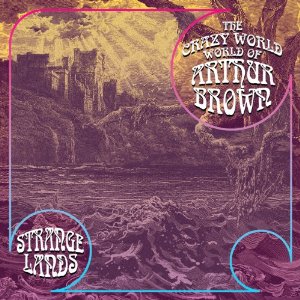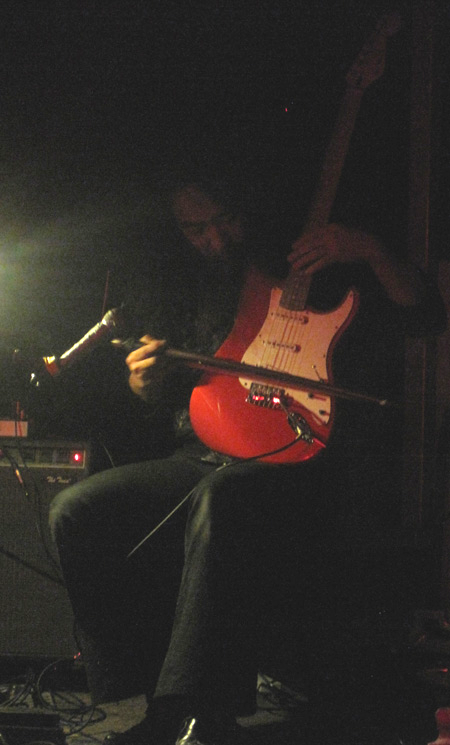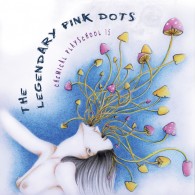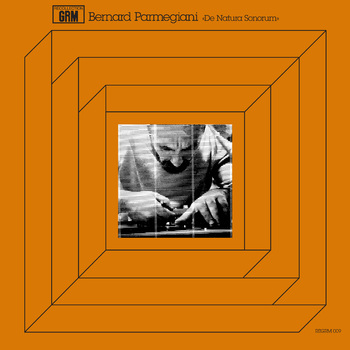 He is the God of Hellfire, and he brings you FIRE! No really, he does. Back in his 1968 prime, Arthur Brown really wasn’t fucking around. Watch the contemporary Top of the Pops footage of the finest Yorkshireman ever to leave the Dales, his flaming helmet burning like Osiris reincarnated in Manchester, and then try telling me that Alice Cooper – and a whole generation of latter-day shock merchants – didn’t take a large part of their blueprint from the man. The make up? Check. The demonic scream? Yep. The pioneering theatrical presentation? All present and correct. As Vince Crane, his keyboard player and band-mate so succinctly put it, “I felt compelled to work with this mad bastard, because he had a rapport with, and control of, the audience that was quite remarkable.”
He is the God of Hellfire, and he brings you FIRE! No really, he does. Back in his 1968 prime, Arthur Brown really wasn’t fucking around. Watch the contemporary Top of the Pops footage of the finest Yorkshireman ever to leave the Dales, his flaming helmet burning like Osiris reincarnated in Manchester, and then try telling me that Alice Cooper – and a whole generation of latter-day shock merchants – didn’t take a large part of their blueprint from the man. The make up? Check. The demonic scream? Yep. The pioneering theatrical presentation? All present and correct. As Vince Crane, his keyboard player and band-mate so succinctly put it, “I felt compelled to work with this mad bastard, because he had a rapport with, and control of, the audience that was quite remarkable.”
The tracks that make up the second half of Strangelands are instrumental, falling between vocalist stools (Goodway was not summoned down to Puddletown until 1970), and feel akin to the tapes of The Magic Band practising the Trout Mask Replica material that surfaced as part of the Grow Fins box-set. On “Litmus Transformation,” “Opus Pocus” and “Crystallised Petard,” Theaker guides the band by the same star that the Captain sailed by. There is some truly awesome BBC-shot footage of Rustic Hinge playing outside at Puddletown in magic hour sunshine, all outlandish costumes and foliate faces, looking like a demented group of woodwose let loose with electric instrumentation. Theaker’s kit is augmented with dustbin lids and various car spares, and the ‘Guinness Is Good For You’ pub umbrella is just the cherry on the top.
Yet this is no mere slavish copying; on “Kinesis” the band launch into a frenzied blast which sounds entirely their own, guitars grinding and Theaker thrashing away behind the kit like a demented jazz octopus, Robert Wyatt gone to the bad. It’s incredible to think that Theaker also played with Love (yes, that Love, he obviously had a fondness for demented and God-like frontmen) and The Mothers of Invention). The final track, the majestic and melancholy “Macedonia,” showcases Theaker’s classical influence and training, the sounds of the Balkans seeping through into his visionary rock by way of his hero Bela. No-one would make music like this in Britain, or anywhere else for that matter, for a very long time indeed. [post=”a-hawk-and-a-hacksaw-cervantine” text=”A Hawk and a Hacksaw”] could drop this into their set and no-one would notice the join. It is a tragedy that Theaker was never afforded more time and space to write and record in his own right throughout the early part of the 1970s. I for one am convinced that the music he would have made would have been utterly idiosyncratic, innovative and outstanding. Sadly, Theaker died of a brain tumour in 1992, so these loose, disjointed fragments must unfortunately serve as his musical epitaph.Arthur Brown’s career, however, hit a decided upswing during the 1990s. Having influenced every macabre rocker from the aforementioned Alice Cooper to Kiss to Marilyn Manson, Brown has become increasingly in-demand for guest appearances, collaborations and gigs across the world, including festivals such as Glastonbury and Wicker Man. When performing with The Pretty Things at the world live premier of SF Sorrow at the South Bank in 2001, Brown took the role of narrator. Afforded a short solo spot, Brown did what every single person in the sold-out Royal Festival Hall was hoped for: he strapped on the flaming helmet once more, set it ablaze and treated the audience to a blistering rendition of “Fire.” Not only that, but he performed a truly awe-inspiring feat of athleticism, running from the stage to the back of the auditorium using only the backs of the seats as firm footing. Not even Iggy could do that.
Still setting his hair on fire, still screaming like a banshee, still crazy after all these years – welcome to the wonderful world of Arthur Brown.
-David Solomons-



